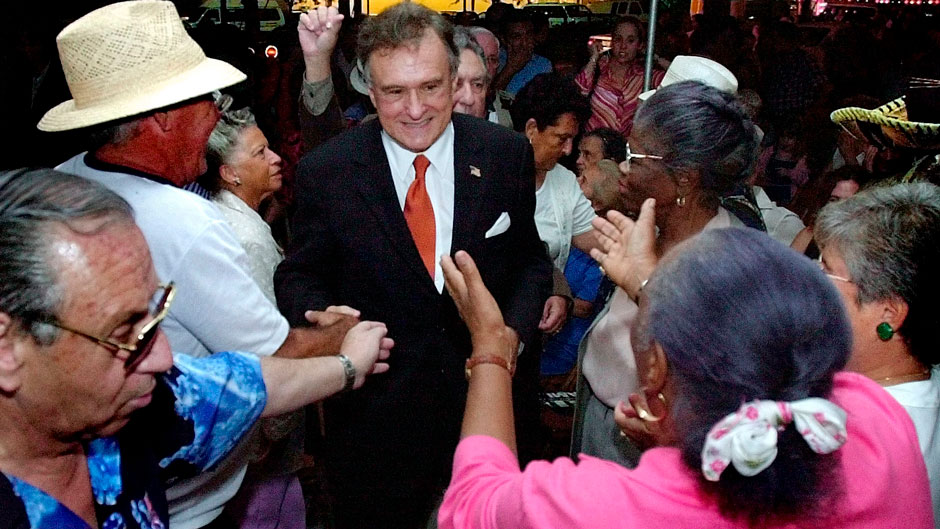Maurice A. Ferré, a beacon of leadership in the Miami community with a deep affinity for the University of Miami as an alumnus and former member of the Board of Trustees, died Thursday at his home in Coconut Grove. He was 84.
A native of Puerto Rico and the first Hispanic mayor of Miami, Ferré led the city for 12 years from 1973 to 1985—a period of profound growth and challenging change for the Magic City. He served in the Florida House of Representatives and Miami City Commission before being elected mayor. In 1976, he served as the national Hispanic co-chair of the Jimmy Carter/Walter Mondale presidential campaign, after having been appointed to the President’s Advisory Committee on Refugees in 1975. He also served as a Miami-Dade commissioner in the early 1990s.
Ferré and his family maintained strong ties with the University of Miami. He graduated in 1957 with a bachelor’s degree in architectural engineering, and was tapped into the Iron Arrow Honor Society, among the University’s highest honors, in 1964. He served on the University’s Board of Trustees from 1967 to 1970 and was a Trustee Emeritus from 1970 to 1982.
The Antonio Ferré Building in the heart of the Coral Gables campus is named for his grandfather.
“While former Mayor Ferré fully grasped Miami’s rising status as the de facto capital of the Americas, he also recognized it as a city on the verge of becoming far greater than the sum of its parts—more diverse, more inclusive, and more embracing of people across the globe,” said University of Miami President Julio Frenk. “This is his legacy, and his alma mater celebrates this visionary leader and generous public servant.”
As mayor, Ferré guided the city of Miami through a period of transformative growth. His tenure also witnessed race riots and a dramatic shift in the city’s demographics, driven largely by mass migration of Cuban refugees. First elected in 1973, Ferré won reelection five times.
A consummate politician and dapper dresser, Ferré was considered by some to be a visionary with only the best intentions for Miami, its people, and its future on his mind. The Miami Herald noted that Ferré, whom it says was “widely regarded as the father of modern-day Miami,” was one of the first to refer to the city as the “gateway to South America” and a community on the verge of becoming a “world-class city.”
“And Miami has grown into that city, nurtured, at the outset, by Ferré,” the Herald Editorial Board wrote.
Rudy Fernandez, the University’s senior vice president for public affairs and communications and chief of staff to the president, said Ferré was “an iconic political figure at a time when Miami was coming of age and maturing,” and someone who was respected by the diverse ethnic communities in Miami.
“Maurice was someone I looked up to growing up in the City of Miami,” Fernandez said. “It was a great pleasure to know him and he will be missed.”
Ferré is survived by his wife, Mercedes; five children, including son Jose who graduated from the University in 1981; 12 grandchildren; seven great-grandchildren; a sister; and a brother. A sixth child, a son, died in an American Airlines plane crash in Colombia in 1995.
Following Ferré’s death Thursday, the family issued a statement to the Herald that said: “Having played an integral part in policy and politics up until his passing, Mayor Ferré will be remembered for his commitment to the internationalization of Miami, social justice, mobility and transportation, education, and his love of God and humanity.”

